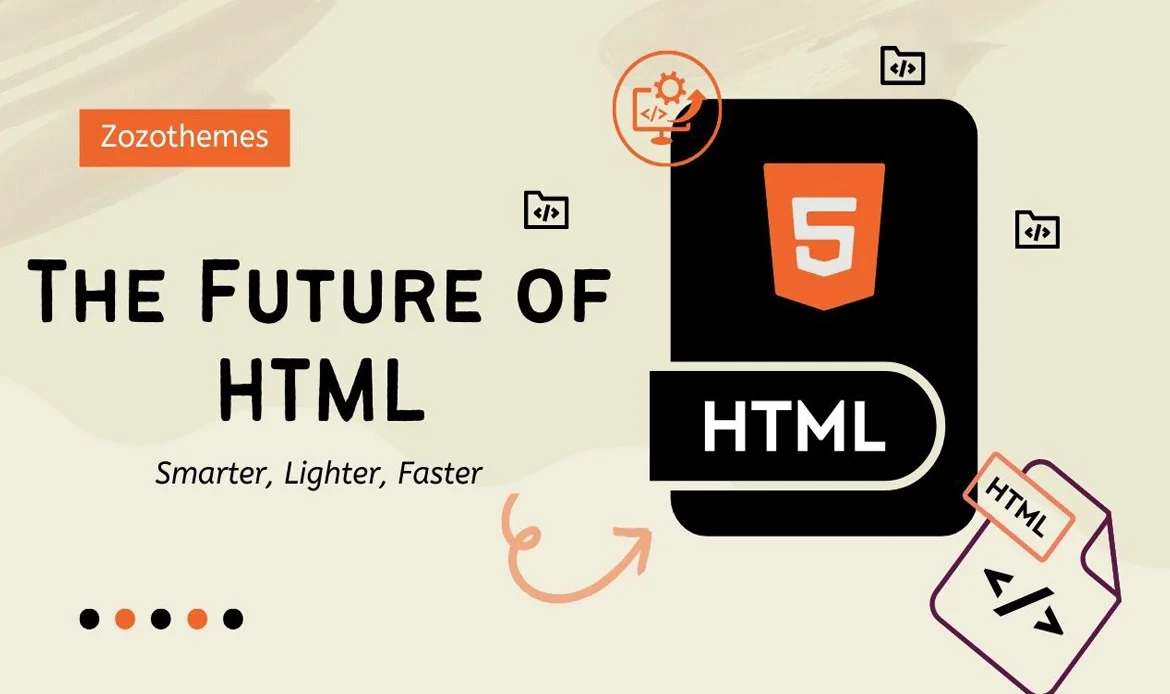The Future of HTML5 is reshaping the digital world, making websites smarter, lighter, and faster than ever before. As the backbone of the web, HTML continues to evolve beyond its basic markup role, bringing improved performance, better accessibility, and SEO-driven structures that benefit both developers and users. With innovations in semantic coding, streamlined elements, and compatibility across devices, HTML5 is set to power the next generation of web experiences. In this article, we’ll explore how HTML is transforming and why it remains crucial for modern web development.
1. HTML to HTML5 – The Journey of Web Evolution
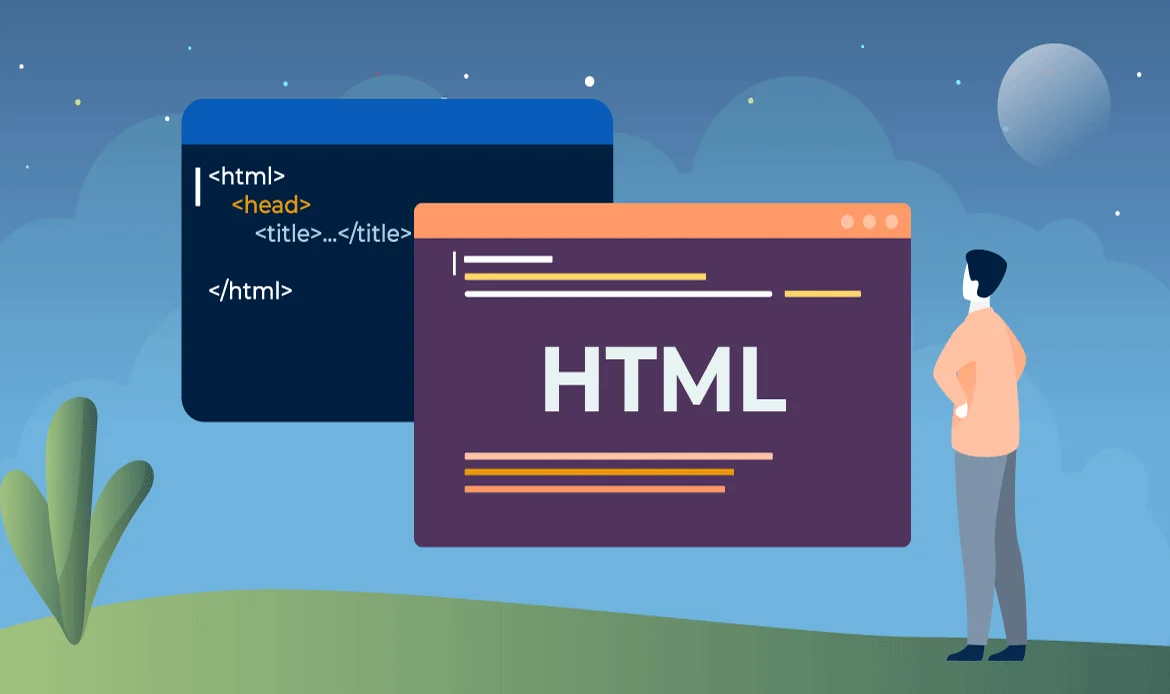
The Future of HTML5 represents one of the most important milestones in web history. While early HTML was limited to text and basic structure, HTML5 introduced a new era of smart coding with semantic elements, multimedia support, and responsive web design. This evolution eliminated the need for heavy plugins like Flash and empowered developers to create more dynamic, accessible, and SEO-friendly websites.
Major Shifts from HTML to HTML5:
- Semantic Structure: Introduction of tags like
<header>,<article>,<nav>, and<footer>made websites more readable by both humans and search engines. - Multimedia Without Plugins: HTML5 replaced Flash with
<video>and<audio>, creating lightweight yet interactive experiences. - Responsive Web Design: HTML5 set the standard for websites that adapt automatically across devices.
- Improved Forms: Advanced input types like date pickers and sliders streamlined UX.
Why It Stands Out: The Future of HTML5 is built on this transformation, ensuring sites are SEO-friendly, mobile-ready, and performance-driven.
2. The Future of HTML5 and Its Role in Digital Marketing
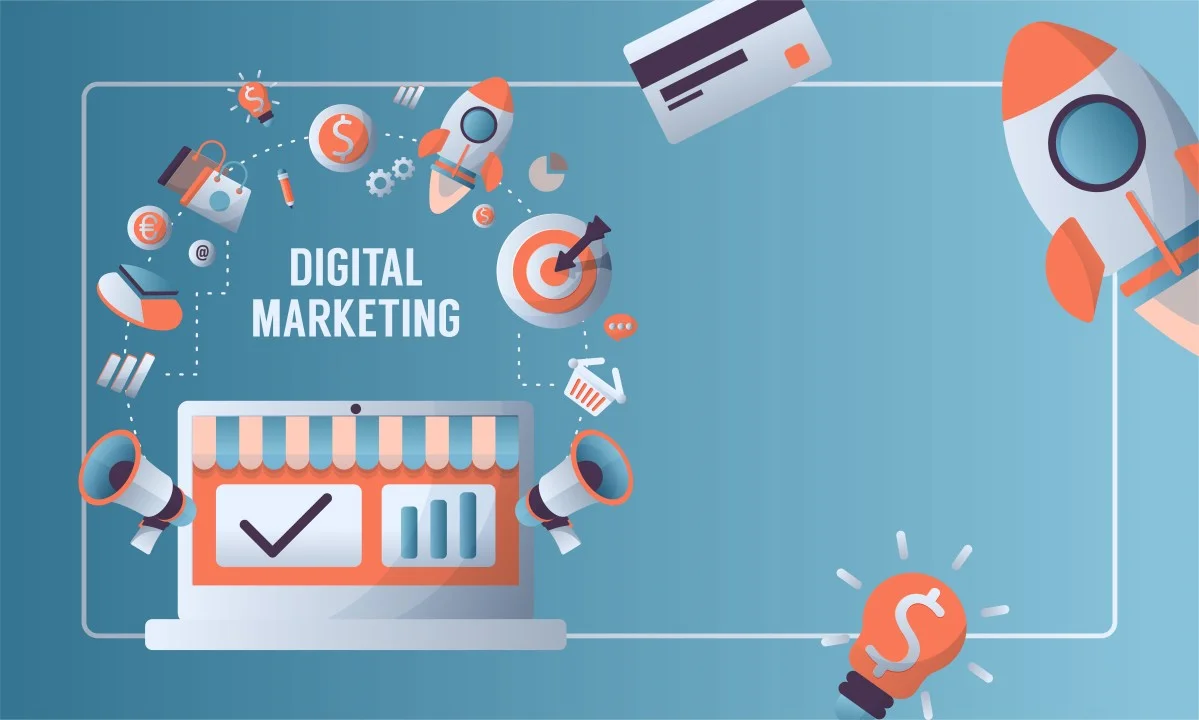
In digital marketing, speed, structure, and engagement are everything. The Future of HTML5 is reshaping online marketing by making websites more mobile-friendly, SEO-optimized, and interactive. Marketers benefit from faster-loading landing pages, built-in support for videos and animations, and enhanced ad performance across devices.
Marketing Benefits of HTML5:
- SEO-Friendly Tags: Improves keyword relevance and search visibility.
- Faster Loading Ads: Lightweight pages ensure ad creatives and landing pages perform better.
- Mobile Optimization: HTML5 websites rank higher in mobile-first indexing.
- Interactive Content: Quizzes, animations, and videos can all be embedded natively.
Impact on Businesses: Companies investing in HTML5 gain a competitive SEO advantage, better conversions, and stronger online authority.
3. Smarter Web Development – HTML5 Meets AI and Automation
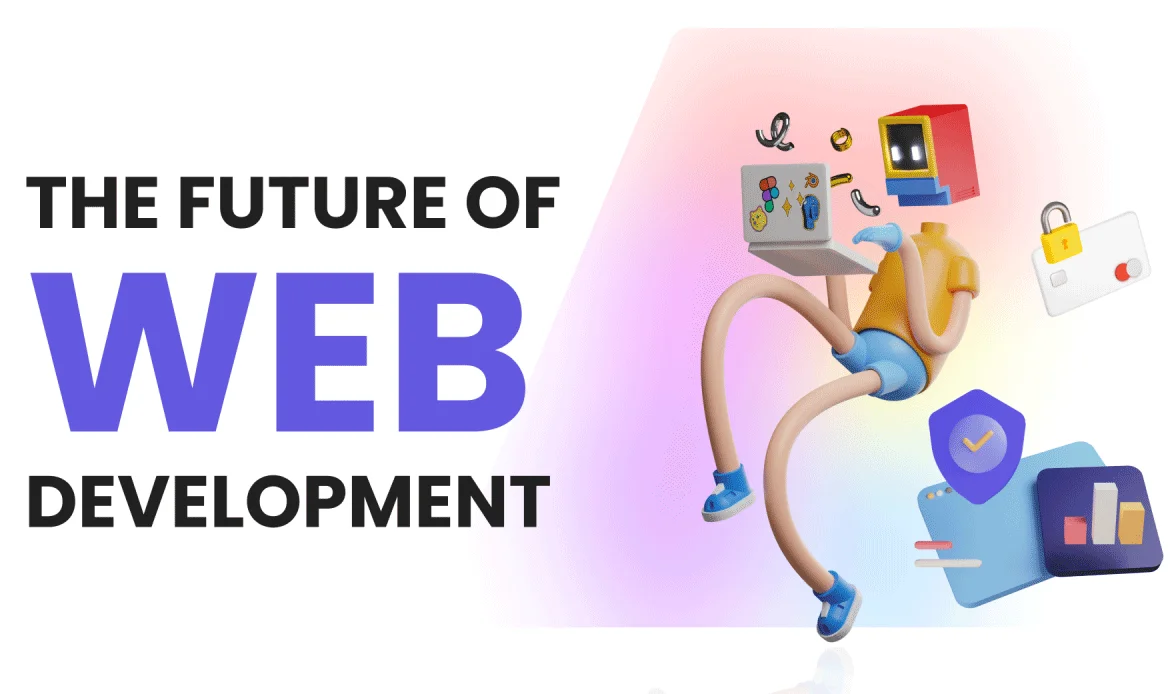
The Future of HTML5 is closely tied to artificial intelligence and automation. As the web shifts toward voice search, AI-driven personalization, and immersive technologies like AR and VR, HTML5 provides the flexible coding framework to support these advancements. Developers can create smarter websites that adapt to user behavior, integrate with intelligent assistants, and deliver seamless automation across platforms.
Key Integrations:
- AI-driven Search: Smarter site searches powered by HTML5 structures.
- Voice Search Optimization: Semantic coding aligns with how voice assistants index content.
- Automation: HTML5 works seamlessly with headless CMS and automated testing tools.
- IoT-ready Interfaces: HTML5 provides a universal layer for connecting with smart devices.
Unique Insight: THTML5 isn’t just about coding—it’s about preparing websites to communicate with intelligent systems of the future.
4. Lighter, Faster, and More Engaging Websites

The Future of HTML5 is about speed and simplicity. By eliminating outdated plugins and reducing unnecessary code, HTML5 makes websites lighter and faster, directly improving user experience and SEO performance. Faster load times lower bounce rates, boost engagement, and improve rankings in Google’s Core Web Vitals.
Benefits of Lightweight HTML5 Websites:
- Reduced Load Times: Directly boosts rankings under Google’s Core Web Vitals.
- Better UX: A clutter-free interface improves engagement and trust.
- Accessibility: Faster, simpler code ensures compatibility with assistive devices.
- Sustainability: Less server load means greener web hosting.
Why This is Unique: ThThe Future of HTML5 is not just about speed, but also about responsibility—creating websites that are eco-friendly and user-centered.
5. HTML5 and the Future of E-commerce

The Future of HTML5 is particularly powerful for e-commerce businesses. Online shoppers expect seamless, fast, and mobile-first shopping experiences, and HTML5 delivers exactly that. By supporting responsive product displays, interactive media, and smooth checkout forms, HTML5 improves the customer journey and reduces cart abandonment.
E-commerce Advantages:
- Seamless Checkout: Forms and validation tools reduce cart abandonment..
- Mobile Commerce: Responsive design ensures smooth shopping on smartphones.
- Rich Media Products: Videos and 3D models can be embedded directly.
- Progressive Web Apps (PWAs): Provide an app-like feel without downloads.
Why E-commerce Needs This: The Future of HTML5 ensures higher conversions and customer satisfaction in competitive online marketplaces.
6. SEO Analysis – How HTML5 Boosts Rankings

The Future of HTML5 is tightly linked to SEO success. Search engines prioritize websites that are fast, mobile-friendly, and semantically structured—all strengths of HTML5. By using semantic tags, clean code, and multimedia integration, HTML5 improves crawlability and enhances user engagement signals. Faster page load times and optimized Core Web Vitals also lead to higher rankings.
SEO Analysis – Advantages of Boosts Rankings
- Crawlability: Semantic HTML5 helps search engines understand content hierarchy.
- Mobile Indexing: HTML5 responsiveness aligns with Google’s mobile-first updates.
- Core Web Vitals: Lighter HTML5 directly improves load times and interactivity scores.
- Accessibility SEO: Clean coding enhances usability, indirectly improving rankings.
- Content Richness: Multimedia elements add depth without harming speed.
Bottom Line: TThe Future of HTML5 merges technical SEO with user experience, creating websites that rank and retain traffic.
7. The Future of HTML5 and Business Websites
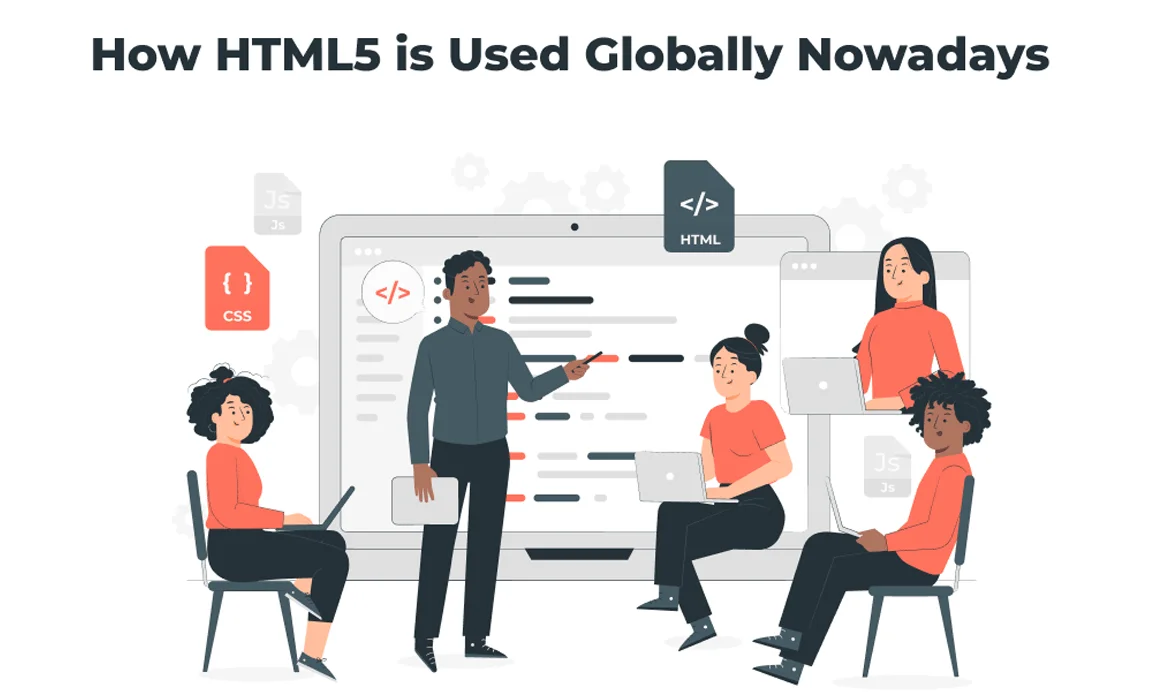
For businesses, credibility and performance are non-negotiable—and The Future of HTML5 ensures both. Corporate and professional websites built on HTML5 benefit from secure coding, mobile-first responsiveness, and faster performance. These factors build trust with users while also boosting SEO visibility. HTML5 enables businesses to showcase their services in a modern, engaging way while ensuring that their sites are accessible across all devices.
Business Benefits of HTML5:
- Professional Design Standards for trustworthiness.
- Cross-Device Performance for remote and global clients.
- SEO Optimization for visibility in crowded markets.
- Security Enhancements with safer coding standards.
Unique Value: The Future of HTML5 is not limited to developers—it’s a strategic asset for businesses aiming for digital growth.
FAQs – The Future of HTML5
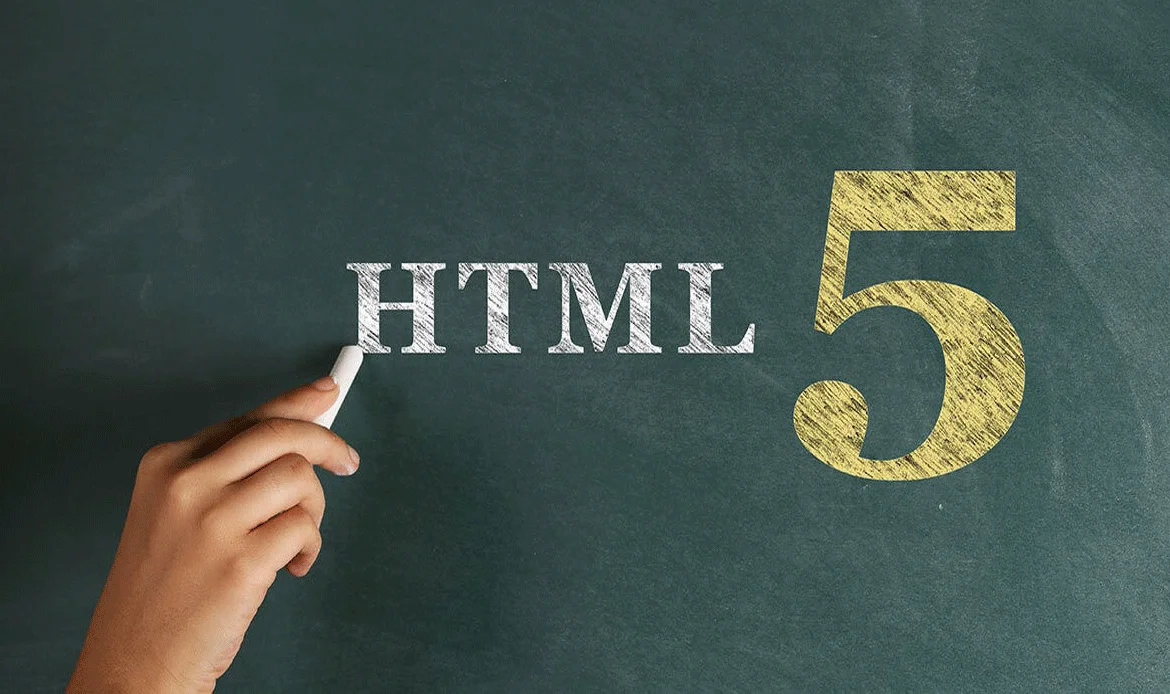
How is HTML5 evolving to improve website performance?
HTML5 is becoming more optimized with lightweight code structures, faster rendering, and better multimedia handling. These enhancements help developers build websites that load quicker and perform efficiently across all devices.
What new features can developers expect in upcoming HTML5 updates?
Developers can expect improved APIs for offline capabilities, enhanced accessibility features, and better integration with modern JavaScript frameworks, making web applications smarter and more dynamic.
Why should businesses upgrade to the latest HTML5 standards?
Upgrading ensures compatibility, improved SEO, and faster load times. Businesses benefit from better user experience, modern browser support, and reduced reliance on external plugins.
Why It Matters: The Future of HTML5 is built on this transformation, ensuring sites are SEO-friendly, mobile-ready, and performance-driven.
Conclusion
The journey of HTML doesn’t end with HTML5 — it’s paving the way for a smarter, lighter, and faster web. By embracing cleaner code, semantic elements, and performance-focused enhancements, developers can create websites that not only load quickly but also rank better in search engines. The future of HTML5 will continue to shape how we build digital experiences, offering both technical strength and SEO advantages. For businesses, designers, and developers, staying ahead with HTML’s evolution is key to thriving in tomorrow’s digital landscape.Create Smarter, Faster Websites with Premium HTML5 Themes!
Experience the next level of web design with our premium HTML5 themes, engineered for businesses, startups, and creators who demand performance and perfection. Each theme is built with SEO optimization, mobile responsiveness, and lightweight code, ensuring your website loads faster and ranks higher.

